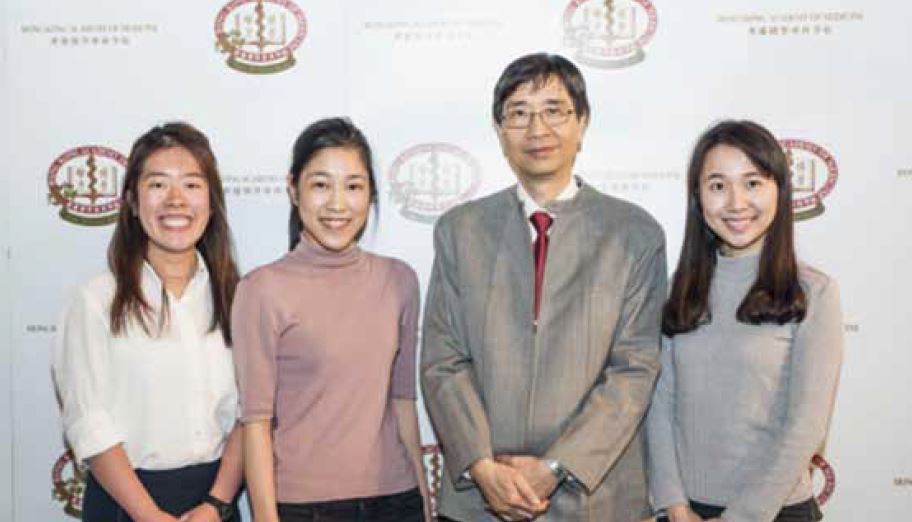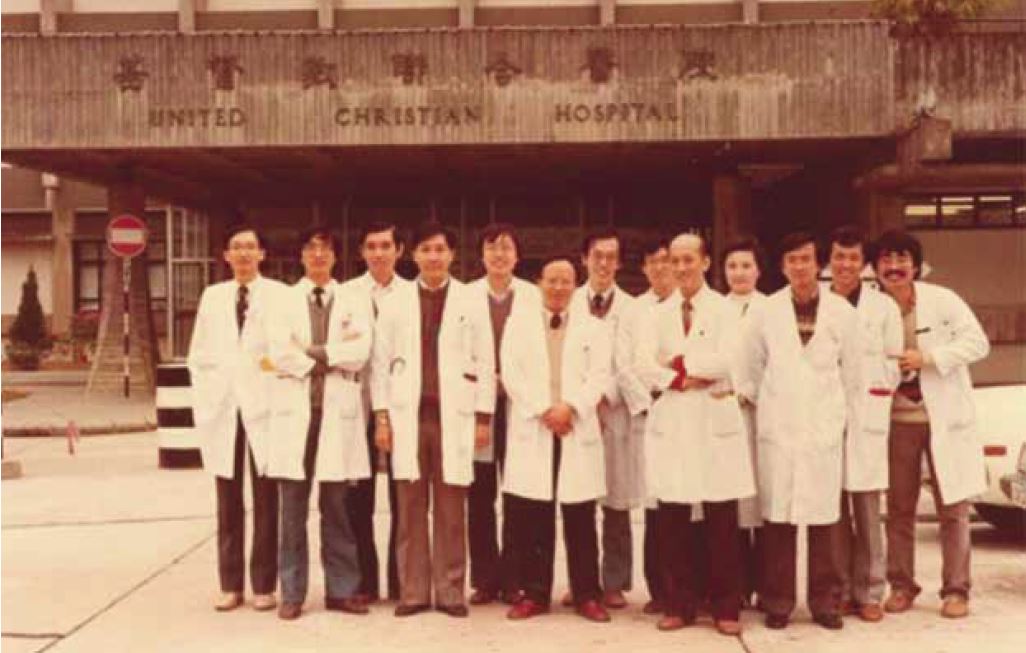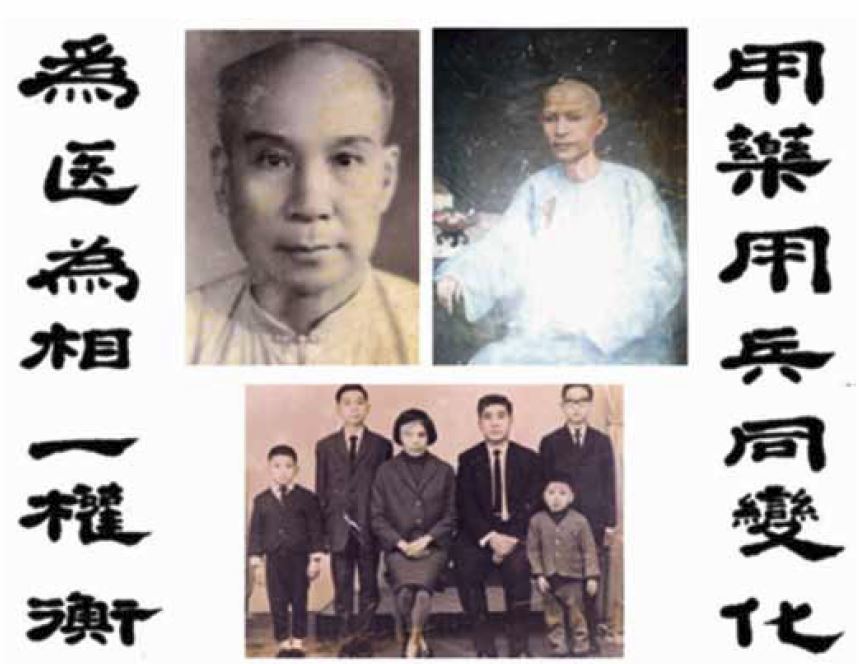© Hong Kong Academy of Medicine. CC BY-NC-ND 4.0
HEALTHCARE FOR SOCIETY
Professor Kwok-yung Yuen: Embracing life with a
beginner’s heart
Joey HY Chan, Hilary HC Kwok, Venice SW Li
Year 5 (MB ChB), The Chinese University of Hong
Kong, Hong Kong
“There is no winning formula—we are all social beings,
and at the end of the day, medicine and life are all about human
connections.”
Behind the renowned face of Professor Kwok-yung
Yuen, the man who discovered the SARS coronavirus after the global
outbreak of Severe Acute Respiratory Syndrome (SARS) in 2003, is a
down-to-earth, sensitive soul. Early on, he was touched by the rawness of
human emotions and made aware of the fragility of life. He started his
career with no expectations, driven solely by a motivation to serve his
community—first as a physician, then as a surgeon, and now as a
microbiologist—and brought with him on this journey nothing but the
curiosity and heart of a beginner.
Igniting curiosity since childhood
Professor Yuen’s marvel towards the nature of life
was apparent during his childhood. He remembers that he would excitedly
bring home animals and insects he found out in the streets. His “pets”
ranged from birds to cats, and from rats to flying cockroaches, much to
the horror of his mother. He also fondly remembers his secondary school
teacher showing him his telescope—a scientific luxury at the
time—allowing him to take his first glimpse of the solar system. This
opened his eyes to the vast possibilities of the unknown. His wonderment
at nature shifted to humans and diseases whilst accompanying his family on
yearly visits to their home village in rural China. His grandfather was a
well-respected Chinese medicine practitioner in his village and would have
the young Prof Yuen accompany him as he cared for patients. Looking back,
Prof Yuen was amazed by his grandfather’s foresight in his
then-unconventional practice of inserting herbal pills underneath
unconscious patients’ tongues, now commonly known as the “sublingual”
method of administration.
Human connections form the heart of medicine
Prof Yuen’s journey as a world-renowned
microbiologist extends beyond academia, microscopes, and petri dishes. His
close encounters with sickness and death have made him realise that
humanity and connections form the core of medical practice. Our ability to
heal arises from our capacity to empathise and share in our patient’s
experience. Prof Yuen still vividly remembers the time during his first
year as an intern, when a fellow classmate was admitted under his care and
diagnosed with leukaemia. It was up to Prof Yuen to break the shocking
news. His friend’s condition progressively worsened after a relapse,
having received a bone marrow transplant in London, and he soon passed
away. With an aching heart, Prof Yuen witnessed his friend’s death. This
experience made him realise that death is a “separation anxiety, the
biggest suffering”. Through this experience he learned that sickness and
death are inevitable, and that accepting this is the first step to healing
others. This serves as a reminder of the importance of providing holistic
care, allowing our patients to live with dignity, and sharing in their
experience of illness.
One of the most memorable moments in his medical
career related to a patient who had seen him for more than 10 years. The
cause of her illness was unknown, and she had failed to respond to many
courses of antibiotics, leading to a gradual decline in her renal
function. But Prof Yuen never gave up on his patient, and strived to find
the cause of this mysterious illness. One day, he came across an article
in the journal Blood, about a case with a very similar
presentation, where the cause was found to be autoimmune antibodies
against interferon-gamma. Relying on nothing but one last hope for the
patient, he decided to test the patient for the presence of such
autoimmune antibodies. However, there was a problem: the test he needed
was not available in Hong Kong. What he did next was very admirable, he
developed a test solely for his patient from scratch. And to his
amazement, his patient was found to suffer from the same cause. Despite
discovering the root cause of her illness at long last, her renal function
had declined to the point of requiring dialysis. Grateful of his
unwavering will to help in the past decade and knowing that she did not
have much longer to live, she asked to meet Prof Yuen one last time. The
question she asked still moves Prof Yuen to this very day, it was simply
“Can I hug you?”
Heart to serve
Prof Yuen’s resolve to serve Hong Kong does not
stop in his clinical work and research. He extends his expertise to advise
on policy making in many government committees. As the Chairman of the
Expert Committee of Antimicrobial Resistance, he advises on formulating
strategies to tackle threats to global public health through surveillance,
regulating use of antimicrobials in humans and animals, and improving
public awareness of this concern that is equally relevant to everyone.
In addition to his tenacity and heart for medicine,
Prof Yuen’s drive to give back to society in any way possible was evident
from an early age. During his days at secondary school, he would often
walk through Central Hong Kong from Queen’s Road West to Queen’s Road East
to ask for donations on flag days. Later, despite the demands of medical
school, he and some fellow medical students would find time to provide
weekly tuition for girls in custody at an institution in Wong Chuk Hang.
Even when working as a medical officer in United Christian Hospital, he
would spend Saturday afternoons every 2 weeks to volunteer at an Elderly
home in Yau Tong.
Keep on having a beginner’s heart
His journey to respect and fame in the Hong Kong
society has been “nothing short of a miracle”. Looking back at all those
years ago, he certainly did not expect himself to end up as an academic
professor. He first trained as a physician, then as a surgeon at United
Christian Hospital. But when a door to a training post in microbiology
opened in Queen Mary Hospital, he decided to take a leap of faith in
pursuit of a more uncommon career path. “Keep on having a beginner’s
heart(初心)” is a phrase that Prof Yuen emphasises. “Let this guide you on
discovering a career of your passion. Let your curiosity wander, question
what we already know, ask yourself: Can there be anything more to it?” His
discovery of the SARS coronavirus was simply the result of taking every
opportunity as it comes. What started off with his first case control
study into Branhamella catarrhalis in bronchopulmonary infections
in 1989, turned into numerous opportunities with the outbreak of avian
influenza virus H5N1, seasonal influenza, and eventually SARS in 2003.
“There is no winning formula, being hardworking, curious, caring, and kind
can never go wrong.” says Prof Yuen.
Despite his achievements, Prof Yuen remains humble:
“Finding the SARS coronavirus is not a measurement of achievement; rather,
it is the emotional satisfaction gained from knowing what you did has made
a positive impact on this world.” As he nears retirement, Prof Yuen is
very thankful for the University of Hong Kong and his colleagues, as none
of it would have been possible without their support. With the inevitable
count-down of his remaining days as an academic professor, he looks
forward to continue nurturing the next generation of doctors and to
continue serving society in whichever way he can.
Advocacy starts with every one of us
There are a number of threats to public health that
Hong Kong may have to face in the near future, particularly antibiotics
resistance, and Prof Yuen urges that advocacy starts from every one of us,
whether we be doctors, nurses, other healthcare professionals, or even
medical students. There is a power in sincerity and good rapport in
reaching out to people. It is up to us to overcome the misconceptions of
the public; every person we come across is an opportunity to advocate.
Together, we will come one step closer to stopping this impending crisis.
But only love endures
Each step Prof Yuen took to understanding the
unknown and satisfying his curiosity was one step closer to achieving his
current accomplishments. So, take heed of Prof Yuen’s advice: “Keep on
having a beginner’s heart.” Approach each day with no expectations, only a
heart to learn and be kind to those around us. You will be surprised
wherever it takes you.
On ending his powerful speech at the 25th
Anniversary Congress of the Hong Kong Academy of Medicine, he concludes
his most treasured lessons in his decades as a medical pioneer with
“Curiosity breeds innovation; logic sets pathways; perseverance brings
fruition; but only love endures!”

Prof Yuen was interviewed by the journal’s student reporters after his oration at the 25th Anniversary Congress of the Hong Kong Academy of Medicine (from left): Joey, Hilary and Venice

Prof Yuen (second from left) when he was working in the Department of Surgery in the United Christian Hospital. Back then, his boss was cautious about him, as he was perhaps too overconfident in his daily clinical routines. Note that in this photo, even his posture is too confident, as he shares the same posture as that of his boss

Both his grandfather (upper left) and great grandfather (upper right) were traditional Chinese medicine doctors. The couplet is a motto which his grandfather taught him since he was a child. He (the one with glasses) grew up with his parents and three brothers (lower middle)

